Slanted FlyingJournal of Tai Chi Chuan
Training
Language
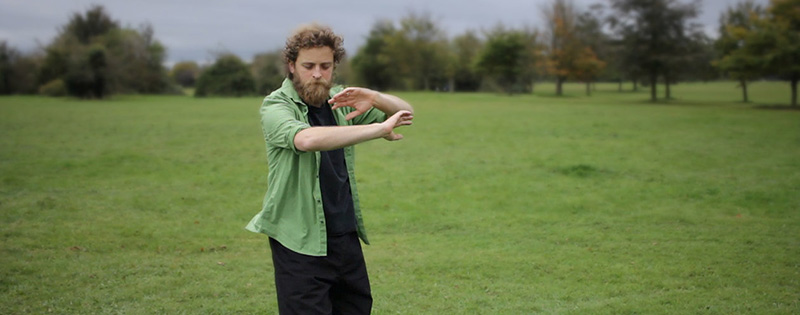
The article “Language” is reprinted on Slanted Flying website with the permission of the author Sam Langley from his personal Blog.
The word ‘Relax’ is a pleasing one and I’ve yet to find a better word to replace it.
It is, perhaps though, problematic. We’re all it seems used to doing and not terribly adept at not doing.
When you tell someone to relax it implies that there is something to do.
How do you force relaxation? I don’t think you can.
Now you could accuse me of pedantry but I think that the language we use is very important
in shaping our reality.
The words we use habitually effect the way we think, feel and experience the world.
I used to work as a hypnotherapist and have seen how people’s use of language can have a powerful impact both on themselves and others.
In China they use the word ‘Song’ to describe the desirable body state required in Tai Chi.
Roughly translated it means loosened. The term ‘song’ is based on a character for ‘long hair that hangs down’.
To me this doesn’t seem to have the same meaning as relaxed.
When you’re slumped on the sofa watching TV you’re probably relaxed but that’s definitely
not the same feeling we’re trying to cultivate in Tai Chi.
Obviously you can’t think your way into getting the right feeling.
With practice you hopefully develop an awareness of tension and are increasingly able
to ‘Let go’ of it.
So maybe I should tell my students to ‘let go of tension’ instead of relax……but it doesn’t roll off the tongue as well and isn’t quite so relaxing to the ear.
Fancy learning Tai Chi in Bristol? Sam teaches regular classes and courses suitable for everyone.



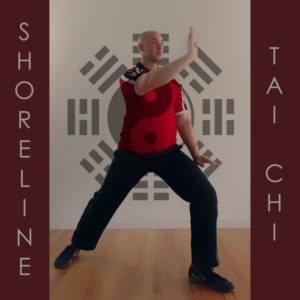
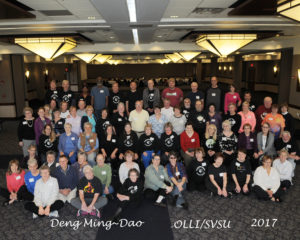
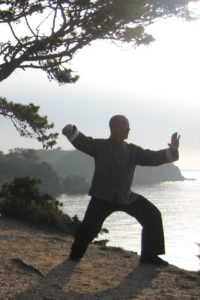

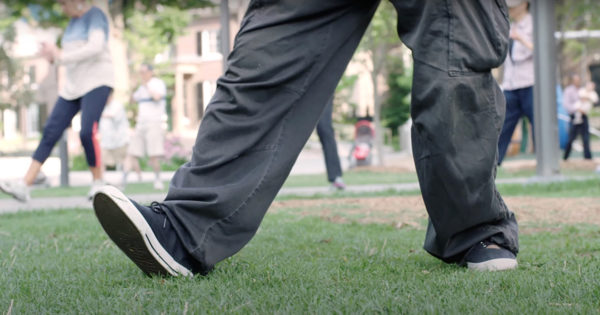






I was thinking about how to describe this recently. Obviously if you relax completely you would collapse. Relax as the Chinese say it doesn’t mean to relax completely. It means to relax the larger muscles, the muscles that create a strong sensation of “tension” when they activate. And that is actually where terminology should be changed. Call it muscle activation but not tension. Because tension is what muscle activity creates, in connective tissue. With smaller muscles, or thinner muscles, like the serratus anterior, it’s harder to feel the muscle activating because it is so thin.
However what you can feel (if you put your awareness in the right place) is the tension it creates in the connective tissue of opposing muscles (the rhomboids and possible the middle and lower trapezius.)
When you spread your shoulder blades using the serratus (but not the pec major) you can get a feeling of spaciousness or openness in the upper back, between the shoulder blades.
This is the sort of tension that keeps your body upright but doesn’t cause strong sensations of muscular activation.
Comparing the two sensations, one definitely feels more relaxed, but it isn’t a state of relaxation. It is just a state where larger muscles that aren’t required are relaxed. As a result, you can more easily notice the sensations created by smaller/thinner muscles.
The cool thing about this type of muscular activation is that it gives you a feel for your body, via that same connective tissue tension, but it also gives you responsiveness. And that’s one of the reasons for trying to relax the larger muscles. Not only does the sensations from the larger muscles drown out the subtler connective tissue sensations, it also slows down reaction time. (There is the proviso that with training, you can notice the subtle sensations even with larger muscles activated.)
Another really cool thing is that if you understand that fang song just means to relax the larger muscles but that smaller muscles are engaged, it is something that you can train. You can teach your students how to find fang song.